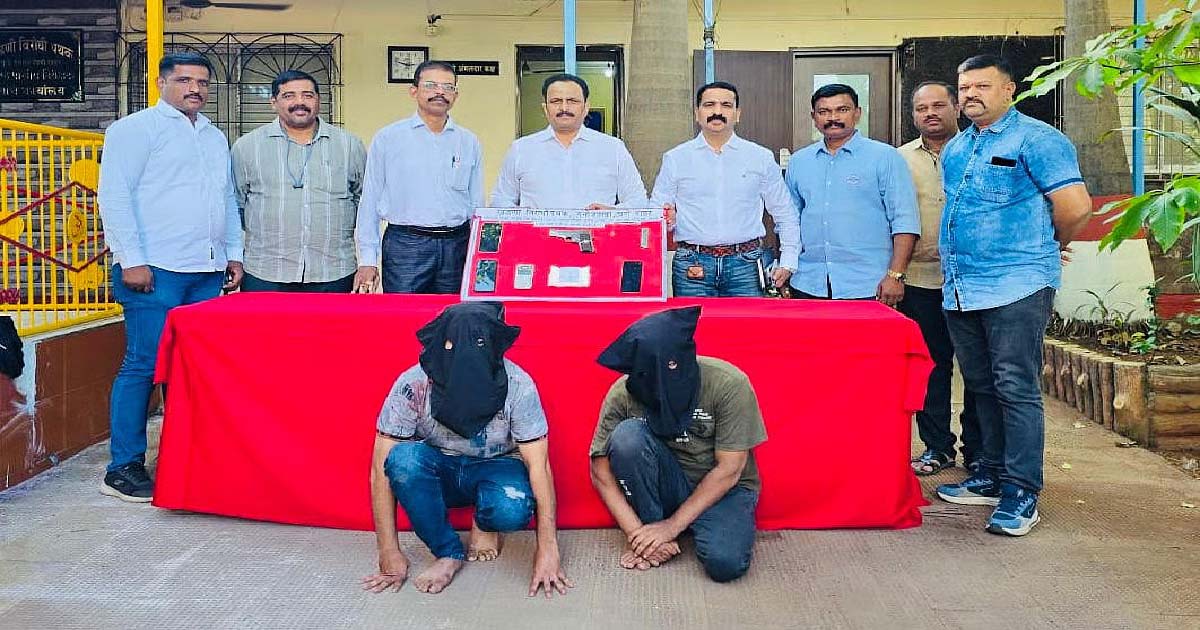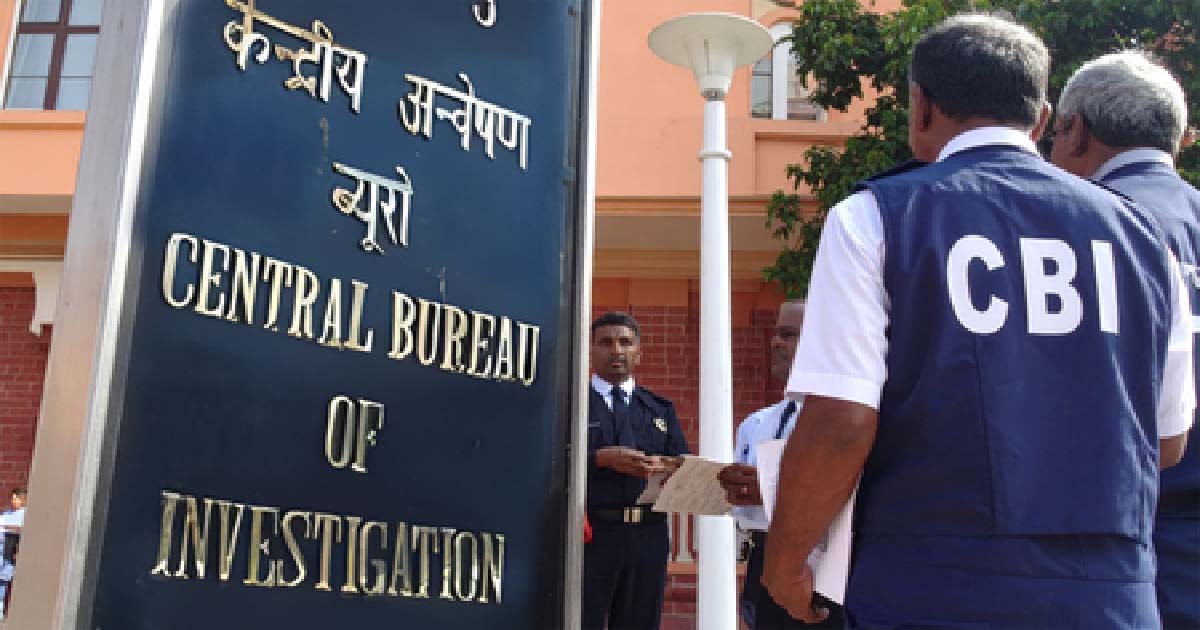Crime
Israeli troops kill three Palestinians in occupied West Bank raids

Israeli forces have killed three Palestinians in two separate incidents in the occupied West Bank, Palestine’s Health Ministry said, as Israeli troops reported opening fire on fleeing suspects and “being pelted with rocks” during raids.
Palestine’s Health Ministry said that Habib Kamil, 25, and Abdulhadi Nazal, 18, were killed by live Israeli bullets in the town of Qabatiya near the northern West Bank city of Jenin.
The Israeli military said that during a raid to arrest a suspect in Qabatiya, “the wanted suspect and an additional suspect fled the scene.”
“The forces fired toward them. The wanted suspect was apprehended and a hit on the additional suspect was identified,” Israeli army said in a statement.
In an ensuing gunfight and clashes, Israeli soldiers shot two other Palestinians, the statement said.
The uptick in West Bank violence continued the trend of 2022, which was the deadliest since UN records began in 2005.
Fears of a military escalation in the territory have been sparked by the inauguration in late December of the most right-wing government in Israel’s history, led by Benjamin Netanyahu.
The West Bank, occupied by Israel in the 1967 Six-Day War, is home to about 2.9 million Palestinians. An estimated 500,000 illegal Jewish settlers now also live in West Bank communities considered unlawful under international law.
‘Don’t be afraid’
Earlier in the day, Palestine announced that 41-year-old Samir Aouni Harbi Aslan was killed “by a bullet of the Israeli occupation army” in Qalandia refugee camp, near Ramallah.
The Israeli military said troops had fired on people who “hurled rocks and blocks from the rooftops aiming at soldiers operating beneath”.
Eighteen people were arrested in raids overnight Wednesday-Thursday across the West Bank, the Palestinian Prisoners’ Club advocacy group said.
Azzam Abdel Qader, who witnessed the raid, said Aslan was shot on the balcony of his home as his son was being detained.
“He shouted at the soldiers and said to his son: ‘Don’t be afraid’,” Qader told the AFP news agency.
“After that, stones were being thrown at the occupation soldiers in the neighbourhood, so the soldiers started shooting randomly.”
Mourners gathered in Qalandia for the funeral of Aslan, the third Palestinian killed in the West Bank in 24 hours.
The Qabatia deaths bring the number of Palestinians killed by Israeli fire since the start of the year to nine.
More killings after deadly year
On Wednesday, an Israeli civilian shot dead a 19-year-old Palestinian near a settlement in the southern West Bank.
The incident followed Israeli troops killing a Palestinian fighter in a firefight during an incursion by the forces into the northern city of Nablus.
His funeral on Thursday drew hundreds of mourners, who gathered in the city hours after another incursion by Israeli forces.
Two Palestinian journalists were among those wounded during the raid.
A surge in bloodshed last year saw at least 26 Israelis and 200 Palestinians killed across Israel and the occupied West Bank, according to an AFP tally.
More than 150 of the fatalities were in the occupied West Bank, according to United Nations figures.
(Source: TRT WORLD)
Crime
Bihar: Robbers posing as police steal goats purchased under CM’s scheme

Patna, Dec 12: A shocking incident has emerged from Samastipur’s Vidyapati police station area, where four men posing as police personnel stole goats purchased under Chief Minister Nitish Kumar’s Women’s Employment Scheme.
The incident occurred on Friday in Dhaneshwarpur South Panchayat, Ward No. 9, when the victim, Champa Devi and her family were asleep.
Suddenly, a four-wheeler pulled up outside their home, and the men inside woke the family.
Claiming they were police officials searching for a liquor mafia suspect, the men forcibly entered the premises.
Inside, they took away four goats that Champa Devi had bought using the Rs 10,000 financial assistance she received under the Women’s Employment Scheme.
When she tried to stop them, the accused reportedly brandished a pistol, abused her, and threatened to kill her.
“They said they were police and that a liquor mafia had passed that way. They showed a pistol and told us to move aside. Fearing for our lives, we stepped back. They loaded all four goats into their vehicle and fled,” said Champa Devi.
The same group allegedly targeted another house nearby, stealing three more goats.
According to the victims, they too had purchased the goats with government assistance.
Before the villagers could understand what was happening, the thieves fled in their vehicle with all seven goats.
Locals have demanded strict police action. However, Vidyapati police said they are awaiting a formal complaint to begin proceedings.
“A report of theft has been received, but no application has been filed yet. Action will be taken as soon as we receive it. The gang involved is being investigated,” said Suraj Kumar, Police Officer, Vidyapati Police Station.
The area has witnessed several such goat thefts in the past. Thieves often arrive in four-wheelers—not on motorcycles or on foot—making quick escapes difficult to track.
In an earlier incident a few years ago, villagers even held a DSP hostage after mistaking him for a goat thief.
Under Chief Minister Nitish Kumar’s Women’s Employment Scheme, women are provided Rs 10,000 each to start income-generating activities.
So far, 1.56 lakh women have received the amount. After six months of evaluation, beneficiaries showing positive outcomes become eligible for Rs 2 lakh in additional support to expand their ventures.
Crime
Thane Crime Branch Busts Mephedrone Racket, Seizes Drugs, Firearm And Arrests Two In High-Intensity Raid

Thane: The Anti-Extortion Squad of the Crime Branch, Thane, acting on secret information, raided a gang involved in the illegal sale of Mephedrone (M.D.) and arrested two accused. Police seized 108.8 grams of Mephedrone worth Rs 10.88 lakh, a country-made pistol, and a live cartridge—totaling Rs 11.41 lakh.
According to the sequence of events, on the night of December 8 around 10:50 PM, the police team raided Shri Gajanan Residency in Adavali-Dhokali, Kalyan East, and caught Aakib Iqbal Bagwan (33). A large quantity of M.D. and an unlicensed country-made pistol were recovered from his possession. Further probe revealed that Bagwan was already wanted in two NDPS cases at Bazarpeth Police Station, Kalyan.
During interrogation, Bagwan disclosed that the pistol was supplied to him by Bharat Shatrughna Yadav. Using technical investigation and confidential sources, the police detained Yadav as well. A live cartridge was recovered from him during the search.
A case has been registered against both the accused at Manpada Police Station under relevant sections of the NDPS Act, the Indian Arms Act, and the Maharashtra Police Act.
The operation was carried out under the guidance of DCP Amarsingh Jadhav and ACP Vinay Ghorpade by Senior Police Inspector Shailesh Salvi, Assistant Police Inspector Sunil Tarmale, and team members Bhosle, Kanade, Thakur, Rathod, Shinde, Patil, Gaikwad, Jadhav, Gadge, Pavaskar, Hivare, Waykar, Shejwal, and Bhosle.
Crime
CBI court sentences ex-village pradhan, fair price shopkeeper to 10 year-jail term in SGRY fraud case

New Delhi, Dec 12: A special CBI court in Lucknow has sentenced two individuals — a former village pradhan and a fair-price shopkeeper — to 10 years of rigorous imprisonment in a major corruption case involving misappropriation of over Rs one crore under the Sampurna Grameen Rozgar Yojna (SGRY), the agency said on Friday.
The verdict was delivered on Thursday. According to an official release, the court convicted Satya Narayan Prasad Patel, then village pradhan, and Shahnawaj Alam, then fair-price shopkeeper (kotedar), imposing a total fine of Rs 55,000 on the two.
The court held them guilty of causing wrongful loss to the government exchequer by siphoning off cash and foodgrains allocated for rural employment and welfare.
The case dates to 2006, when Narhi Police Station in Ballia district registered an FIR alleging large-scale irregularities in SGRY distribution.
The Central Bureau of Investigation (CBI) took over the probe on October 31, 2008 and registered a case against 172 accused persons, including officials responsible for implementing the scheme at the village and district levels.
Investigators found that the accused caused a wrongful loss of Rs 65 lakh in cash and misappropriated foodgrain worth Rs 45.26 lakh, preparing forged records and using fraudulent means to divert government resources intended for the rural poor.
“It was alleged that the accused persons had caused wrongful loss to the Government Exchequer to the tune of Rs 65.00 lakh in cash and foodgrain worth Rs 45.26 lakh and corresponding gain to themselves by cheating, fraud, and preparing forged documents under Sampurna Grameen Rozgar Yojna (SGRY),” the CBI said in its press note.
After a detailed investigation, the CBI filed a charge sheet on November 10, 2010, against three individuals: Satyendra Singh Gangwar, then Chief Finance and Accounts Officer of the District Rural Development Agency (DRDA) Ballia; Satya Narayan Prasad Patel; and Shahnawaj Alam.
Following the trial, the CBI court convicted Patel and Alam but acquitted Gangwar of all charges.
-

 Crime3 years ago
Crime3 years agoClass 10 student jumps to death in Jaipur
-

 Maharashtra1 year ago
Maharashtra1 year agoMumbai Local Train Update: Central Railway’s New Timetable Comes Into Effect; Check Full List Of Revised Timings & Stations
-

 Maharashtra1 year ago
Maharashtra1 year agoMumbai To Go Toll-Free Tonight! Maharashtra Govt Announces Complete Toll Waiver For Light Motor Vehicles At All 5 Entry Points Of City
-

 Maharashtra1 year ago
Maharashtra1 year agoFalse photo of Imtiaz Jaleel’s rally, exposing the fooling conspiracy
-

 National News1 year ago
National News1 year agoMinistry of Railways rolls out Special Drive 4.0 with focus on digitisation, cleanliness, inclusiveness and grievance redressal
-

 Maharashtra1 year ago
Maharashtra1 year agoMaharashtra Elections 2024: Mumbai Metro & BEST Services Extended Till Midnight On Voting Day
-

 National News1 year ago
National News1 year agoJ&K: 4 Jawans Killed, 28 Injured After Bus Carrying BSF Personnel For Poll Duty Falls Into Gorge In Budgam; Terrifying Visuals Surface
-

 Crime1 year ago
Crime1 year agoBaba Siddique Murder: Mumbai Police Unable To Get Lawrence Bishnoi Custody Due To Home Ministry Order, Says Report












